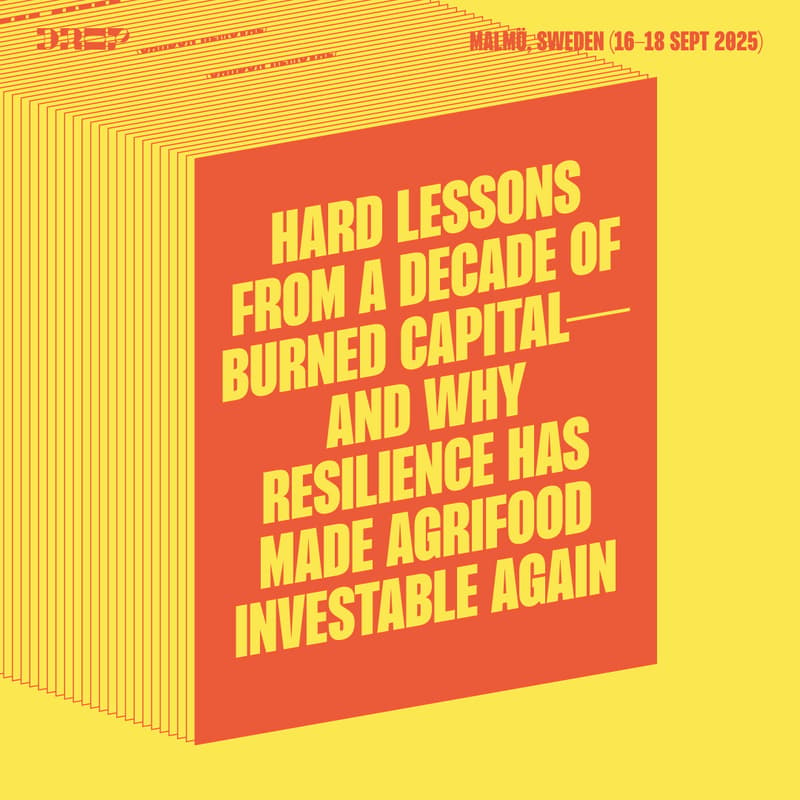

Hard lessons from a decade of burned capital—and why resilience has made agrifood investable again
Ripple Hosts
Ali Morrow
Clay Capital
Mark Kahn
Omnivore
TL;DR
Summarize the Ripple in a couple of sentences
Topic overview
Why is the topic relevant?
Three threats keep global leaders awake: national security, energy security, and food security. They're not separate issues - they're completely interlinked, and no country can escape that reality. The era of "resilience meets tech" is upon us. After weathering a brutal boom-bust cycle, agrifood tech has emerged leaner, smarter, and focused on solving real problems rather than chasing hype. The sector that was once a nice-to-have impact play is now critical infrastructure investment. In the age of resilience and resource security, agrifood tech is back on the menu and finally ready for serious venture capital.
What’s up for discussion?
What are the biggest misconceptions about "global agrifood markets" that keep tripping up investors?
Why "software eating agriculture" was mostly wrong - when does digitization actually work?
What went wrong with alt protein and vertical farming and what are those lessons for the future
Why environmental sustainability is impossible without sustainable farmer economics
The critical difference between solving for the farmer vs. solving for the food system
Why B2B models consistently outperform B2C in agrifood tech
How to spot companies building solutions in search of problems vs. those that started with a real, painful problem worth paying to solve
How do successful agrifood companies adapt their technology and business model by region?
What specific regional factors should we map before investing (labour availability, energy costs, regulatory speed, distribution channels)?
When should companies focus on one region vs. attempting global expansion?
Decoupling food and agriculture - how businesses in these categories differ and their investment criteria must as well.
Tailwinds created by a renewed focused on “resilience” and regional resource security - what can we count on to fuel growth and investibility?
Dream outcome
Two main aims: First, we want to reconnect food back into the 'security' equation through the current focus on resilience - making agrifood highly relevant again, not just a nice-to-have impact play but a critical infrastructure investment.
Second, the most common comment I hear from generalist deep tech and climate investors is that they "want to invest in agrifood but don't know how/where to make it VC-worthy." We want to give them a personalized tour of what we've learned to look for in deals that are actually doing well - the patterns we see in our best-performing investments and what gets us excited when we see a new deal. The goal is to build confidence and get people excited again about the real opportunities in agrifood tech, armed with the insights to spot the deals worth backing.
Who should attend?
Climate and deep tech investors who recognize that food security is climate security but haven't figured out how to make it investable. Corporate VCs and corporates (especially food and agriculture companies) dealing with supply chain resilience and innovation strategies. LPs looking to understand emerging opportunities in resilience investing. Family offices focused on security and resilience themes. A real win would be attracting generalist investors (GP & LP) who see the sector's potential but haven't pulled the trigger yet - those who are intrigued enough to join even if they're not currently investing in food. Plus experienced founders who can share the operator perspective on what actually works in practice.